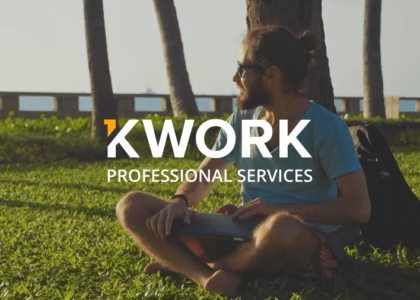Ranking on Google Imagine having the world’s best lemonade stand hidden in an alley no one ever finds. That’s what having a website with no Google ranking feels like! Ranking high on Google means visibility, credibility, and, most importantly, traffic. Whether you’re selling products, offering services, or just sharing knowledge, ranking = attention = success.
How Google Search Works
Google acts like a massive librarian. It crawls the web, indexes pages, and ranks them based on relevance and authority. When you type a query, Google sifts through billions of pages in milliseconds to show you what it thinks is the best answer.
Understanding Google’s Ranking Factors
On-Page SEO Factors
This includes everything you do inside your website — keywords, content, meta tags, internal links, and more. It’s about telling Google, “Hey! I’m relevant to that search!”
Off-Page SEO Factors
Think of this like your website’s reputation. Other sites linking to you are like recommendations. The more you get (especially from trusted sites), the higher your chances to rank.
Technical SEO Factors
Technical SEO is the foundation. It ensures that Google can find, crawl, index, and understand your site without problems.
On-Page SEO Mastery
Crafting High-Quality Content
Content is where it all starts. Write for humans first, search engines second. Deep, original, and engaging content makes readers stick around — and that tells Google you’re worth showing!
Keyword Research and Placement
Keywords are the bridge between what people are searching for and the content you offer. Use them naturally in your:
- Titles
- Headings
- Body text
- URLs
- Image Alt texts
Importance of Meta Tags
Meta titles and descriptions are the first things users see in search results. Make them catchy, accurate, and keyword-rich to boost click-through rates.
Off-Page SEO Strategies
Building High-Quality Backlinks
A backlink from a trusted site is like a gold star on your homework. Focus on getting backlinks from reputable, niche-relevant sites rather than just any place you can.
Guest Blogging and Outreach
Writing for other blogs not only gets you backlinks but introduces you to new audiences. Win-win!
Social Signals and Branding
While social signals aren’t a direct ranking factor, building a strong brand across social media makes your website more authoritative.
Technical SEO Essentials
Website Speed Optimization
Nobody likes waiting. A slow site = lost visitors = lost rankings. Use tools like Google PageSpeed Insights to boost your loading times.
Mobile-Friendliness
More than half of Google searches come from mobile devices. If your site isn’t mobile-optimized, you’re missing out—big time!
Secure and Crawlable Websites
Always use HTTPS. Also, ensure your site has a clean structure with a sitemap and robots.txt file to guide Google’s crawlers.
Local SEO Tips for Google Ranking
Optimizing Google My Business
If you’re a local business, claim and optimize your Google My Business profile. It helps you show up in local searches and on Google Maps.
Local Citations and Reviews
List your business consistently across local directories and encourage happy customers to leave positive reviews. These small things massively impact local rankings.
Content Is King: Why Quality Always Wins
User Intent and Content Depth
Understand why someone is searching. Then, deliver more value than anyone else on the first page. Answer questions before they even ask them.
Updating and Refreshing Old Content
Google loves fresh content. Revisit old blog posts, add new insights, update statistics, and republish.
User Experience (UX) and Its Role in Rankings
Bounce Rate and Dwell Time
If people click your site and immediately leave, Google assumes it’s not valuable. Keep readers engaged with clear navigation, great design, and internal links.
Easy Navigation and Site Architecture
Organize your website logically. Imagine guiding a friend blindfolded through your house — if it’s confusing, they’ll leave fast!
Understanding Google’s Algorithm Updates
Core Updates Overview
Google’s core updates happen a few times a year, shifting the SEO landscape. They aim to improve how search results meet user intent.
How to Adapt to Algorithm Changes
Stay updated with SEO news. Focus on quality content, great UX, and ethical SEO practices to stay safe.
Common SEO Mistakes to Avoid
Keyword Stuffing
Overloading a page with keywords makes it unreadable and actually hurts your rankings.
Ignoring Mobile Users
If your website isn’t mobile-friendly, you’re basically closing the door on half your potential audience.
Poor Link Building Practices
Buying shady backlinks or participating in link schemes can get your site penalized. Play smart and ethical.
How Long Does It Take to Rank on Google?
Factors Influencing Ranking Speed
- Website age
- Competition level
- Quality of content
- Strength of backlinks
- Consistency in SEO efforts
Pro Tip: SEO is a marathon, not a sprint. Be patient and persistent.
Tools to Help You Rank on Google
SEO Audit Tools
- Ahrefs
- SEMrush
- Screaming Frog
These tools help you spot and fix SEO issues on your site.
Keyword Research Tools
- Google Keyword Planner
- Ubersuggest
- AnswerThePublic
Find keywords people are actually searching for.
Case Studies: Websites That Nailed Their Rankings
What They Did Right
Successful sites focus on:
- Killer content
- Smart keyword use
- Earning strong backlinks
- Keeping user experience front and center
They don’t just chase Google’s algorithms—they focus on helping users first.
Conclusion
Ranking on Google isn’t magic — it’s methodical work. Focus on creating real value, making your site technically sound, and building real relationships online. SEO rewards the ones who are consistent, ethical, and genuinely obsessed with delivering the best for their audience.
Now that you’ve got the roadmap, it’s time to start climbing the Google ranks and watch your site soar!
FAQs
How often should I update my website content?
At least every 3-6 months. Keep it fresh, accurate, and engaging.
Can I rank without backlinks?
It’s possible for low-competition keywords but backlinks dramatically boost your chances.
Is SEO a one-time task?
Nope! SEO is ongoing. Regular updates, content creation, and link building are key.
How important are meta descriptions?
Very important! They affect your click-through rate, which can impact your rankings.
Does social media impact SEO?
Indirectly, yes. A strong social presence can boost brand visibility and drive traffic to your site.






